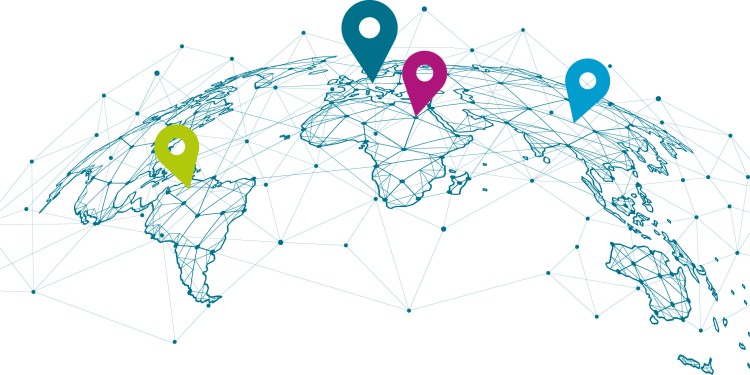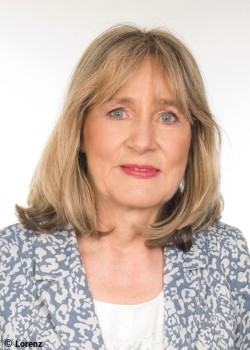
“It will remain a balancing act”
International exchanges and collaborations should be a matter of course for universities. It is, after all, only through insights and findings achieved through working together that global challenges can be mastered. However, the tensions arising from, on the one side, our own system of values – for example, our notions of the rule of law and academic freedom – and, on the other, from markedly different value systems in partner countries are constantly growing. In an interview with Norbert Robers, Dr. Heide Ahrens, Secretary General of the Deutsche Forschungsgemeinschaft (DFG, German Research Foundation), talks about diplomacy in science.
The issue of how to deal with researchers from politically and socially controversial states or dictatorships has become dramatic as a result of Russia’s war of aggression against Ukraine. On the other hand, it was presumably already an issue for the German Research Foundation (DFG) before this war … ?

So was – or is – the cooperative approach taken towards countries such as China or Russia naïve?
No one assumes that we can change the world just through academic cooperation. But we are still interested in using diplomacy in science as it plays a special role in international cooperation. Global challenges such as protecting the environment, climate change or biodiversity can only be mastered by the international community working together. We will not be able to find sustainable solutions to these problems without China, for example.
How does the DFG specifically assess current relations with Russia and China?
The fact that the Russian President Vladimir Putin has refused to recognise Ukraine’s territorial sovereignty and its national identity has a variety of consequences. Immediately after the war began, we decided to suspend all support at the institutional level for the time being – which was an unprecedented decision in the history of the DFG. This means, for example, that no more data or equipment can be transferred to Russia. However, we very much hope that academic contacts at a personal level will endure. As far as China is concerned: Germany and China have a valuable partnership in science going back many years. This finds expression in a unique joint venture, the Sino-German Centre for Research Promotion, which is maintained by the DFG and the National Natural Science Foundation of China. At the same time, China is increasingly turning into a competitor with clear national core interests. As a result, scientific collaborations too have become more challenging for the DFG as a provider of research funding, for example as regards data protection. In this connection, what I think is urgently required is for precautions to be taken for more security in our activities, thus strengthening awareness – and this not least so as to be able to ensure that collaborations are undertaken with both partners on an equal footing.
Russia and China are clear-cut cases for many observers. What recommendations or rules does the DFG have for countries such as Qatar, North Korea or Turkey, which are also dictatorships or at least not exactly flawless democracies?
The DFG signs cooperation agreements aiming at joint tenders with countries which share common standards. In such agreements, certain general conditions are also defined of course. A good example of this is the so-called WEAVE Agreement – between the DFG and other research-funding organisations in Europe – covering cooperation in the assessment and funding of bilateral or trilateral cross-border research projects. However, there are many countries in the world with whom we have no agreements, primarily because there is no need for them on the part of universities.
But nor does that preclude individual researchers from Germany from collaborating with colleagues in Qatar or North Korea?
That is correct. For any collaborations with partners in countries which have a different value system, we recommend paying special attention to safeguarding the rights of vulnerable people in that country. Everyone involved should take a very close look at who they’re cooperating with and sharing data with. Something that has a very high status for us is a general sensitisation and a minimising of risks in all collaborations.
On the other hand – or at least, this is what advocates say – contacts with civil society are very important precisely in such countries.
That is our view too. Take the example of Iran. An extremely difficult situation. After the political changes which seemed to be in the air in 2015 – though only for a short time, unfortunately – it took a lot of painstaking work to re-establish scientific contacts. As much as we might personally feel solidarity with the public protests against the Iranian regime, for us to take a public stand would make it impossible for the tender shoots of scientific collaboration to flourish in the long term – and might even endanger our partners there.
So in academic life we are left, as always, with the oft-quoted balancing act?
That’s right. The contacts arising through academic work are often helpful and extremely valuable – precisely for the researchers in the countries you mentioned as examples. The original hope of helping to bring about social or political change in the medium term has only been partially realised, unfortunately. Nevertheless, scientific collaborations keep information channels open in both directions. Our policy is therefore to maintain our contacts for as long as we can. For the foreseeable future, it will remain a balancing act.
This article first appeared in the University newspaper wissen|leben No. 2, 29. March 2023.
